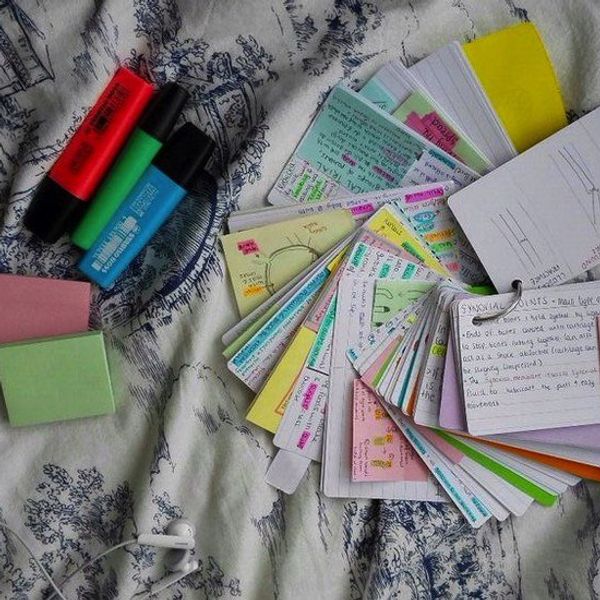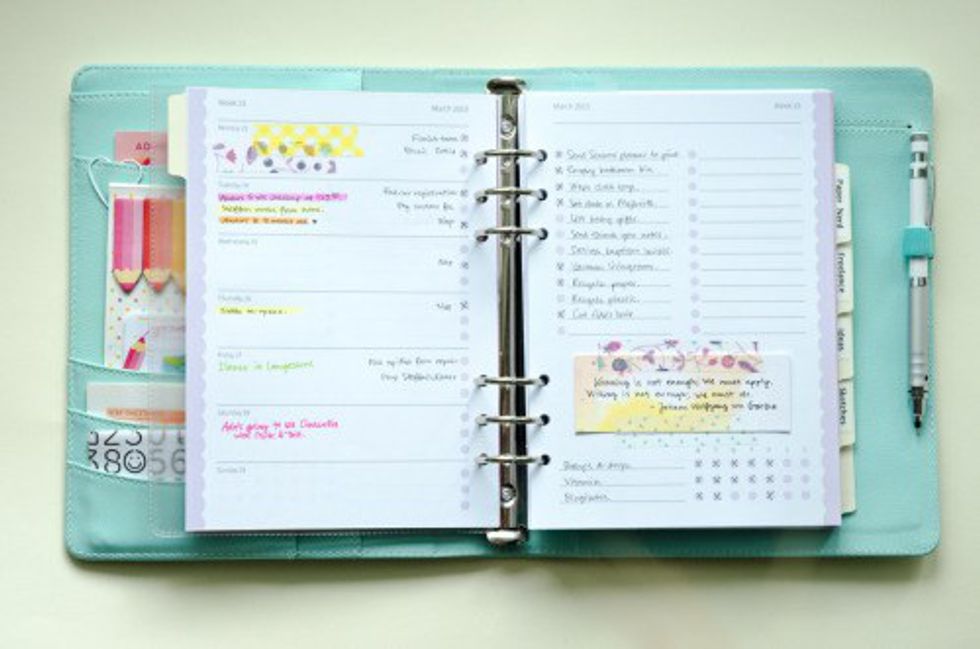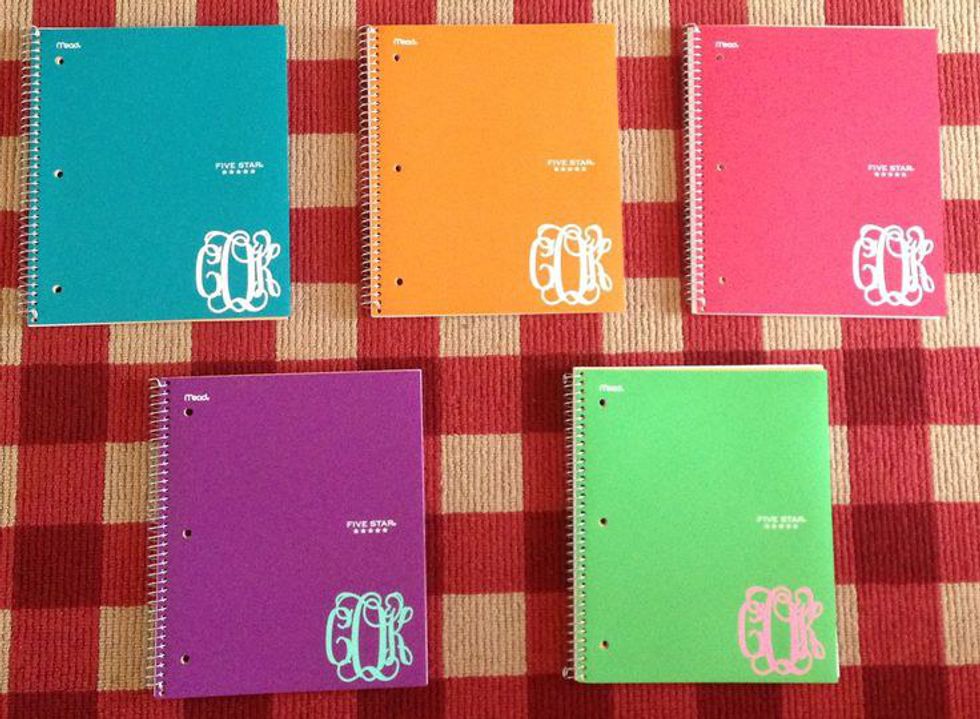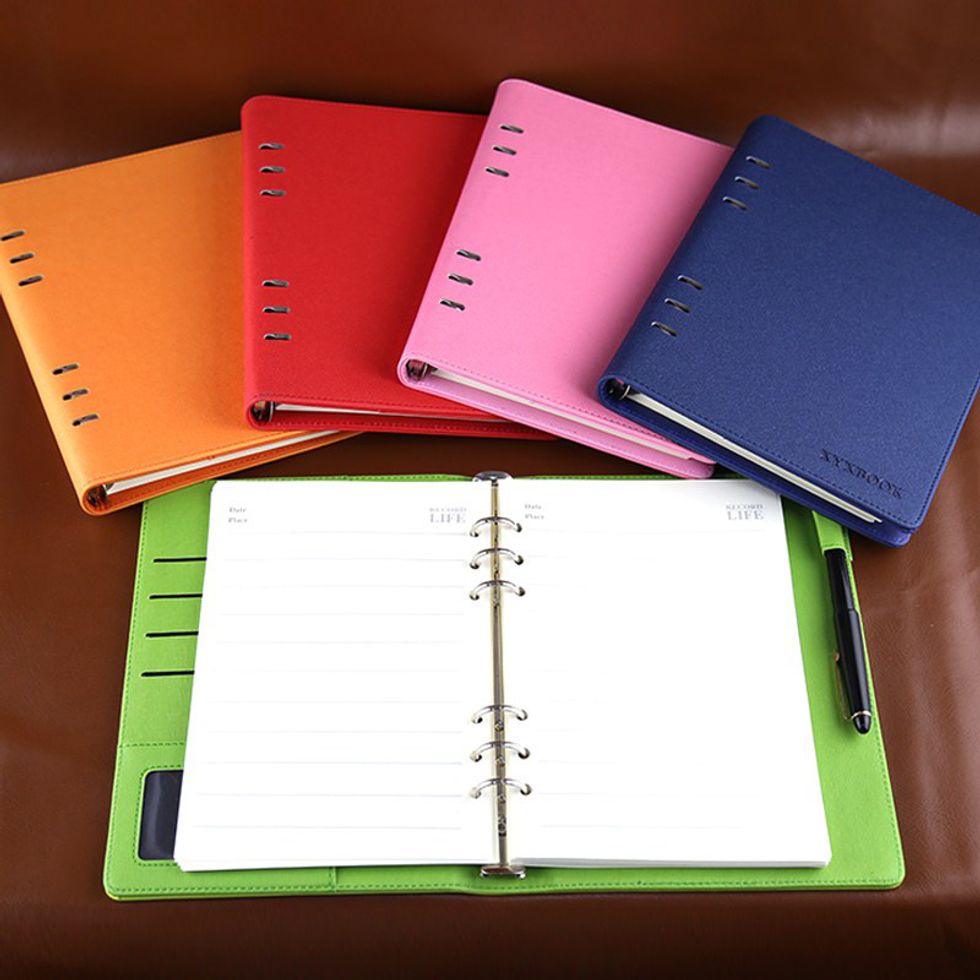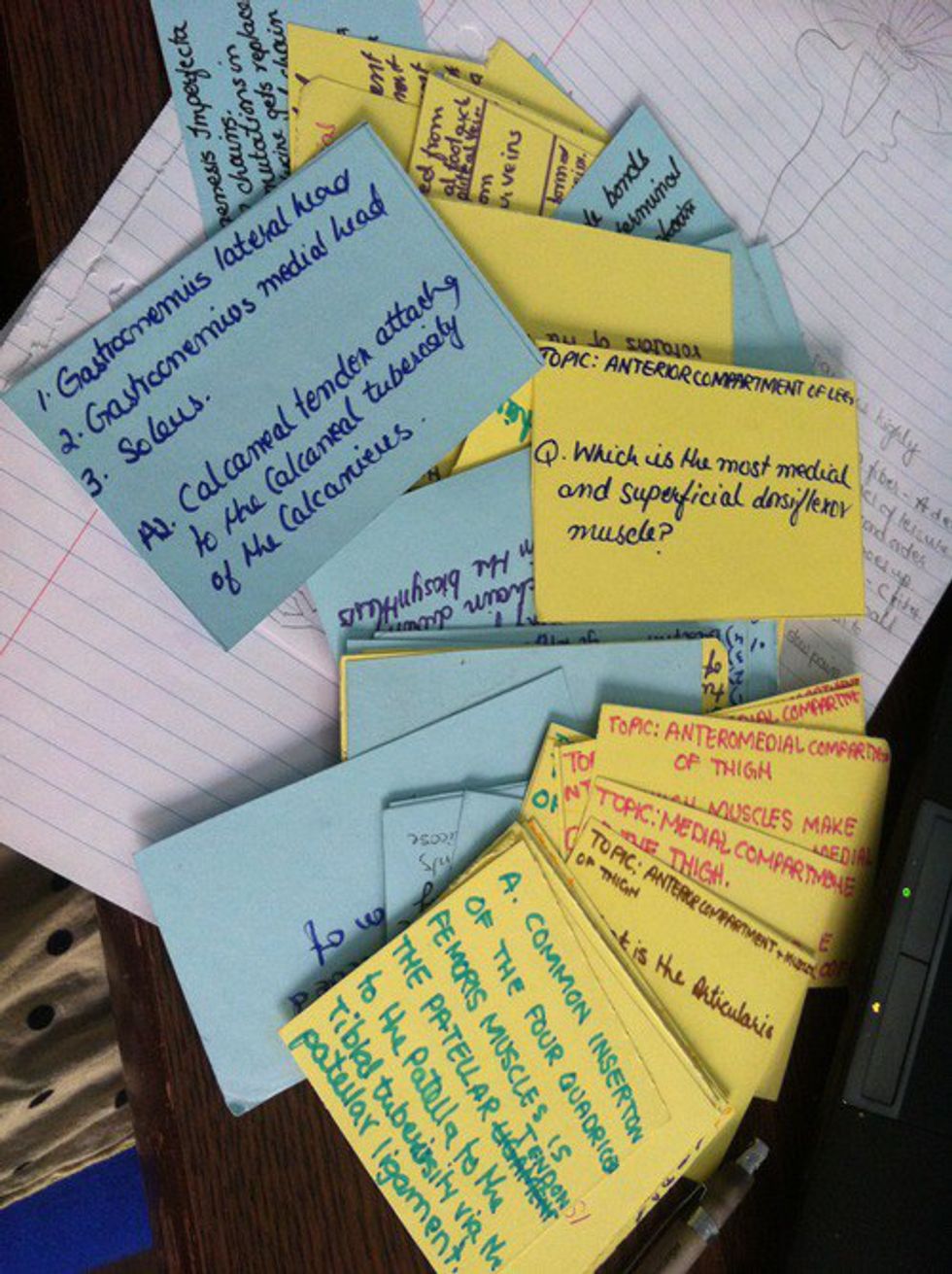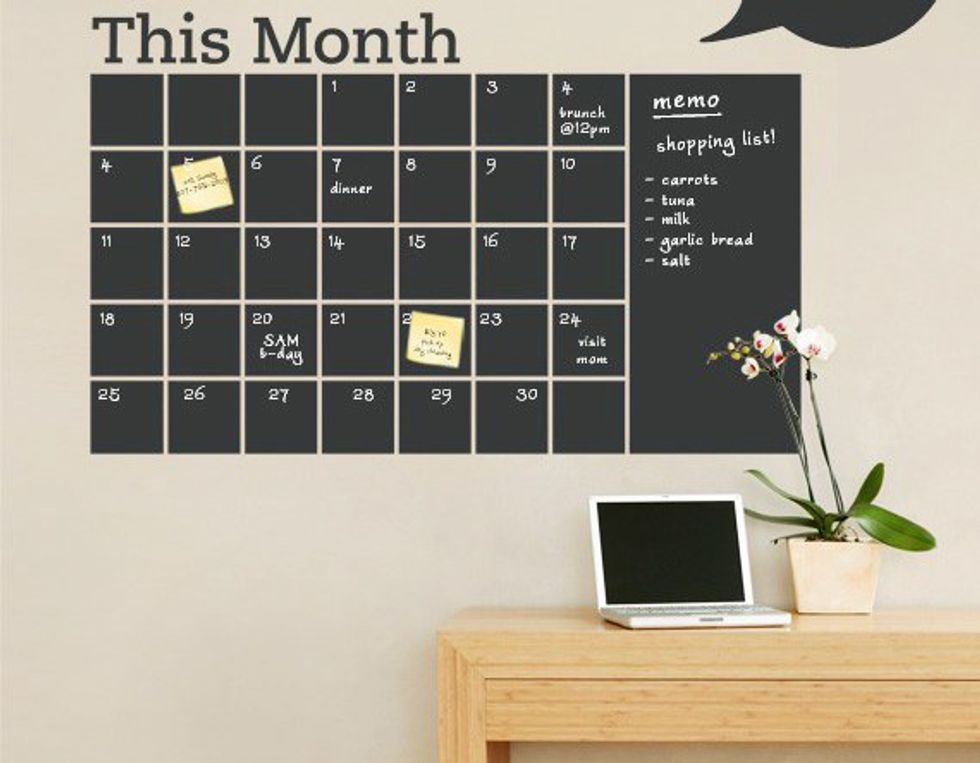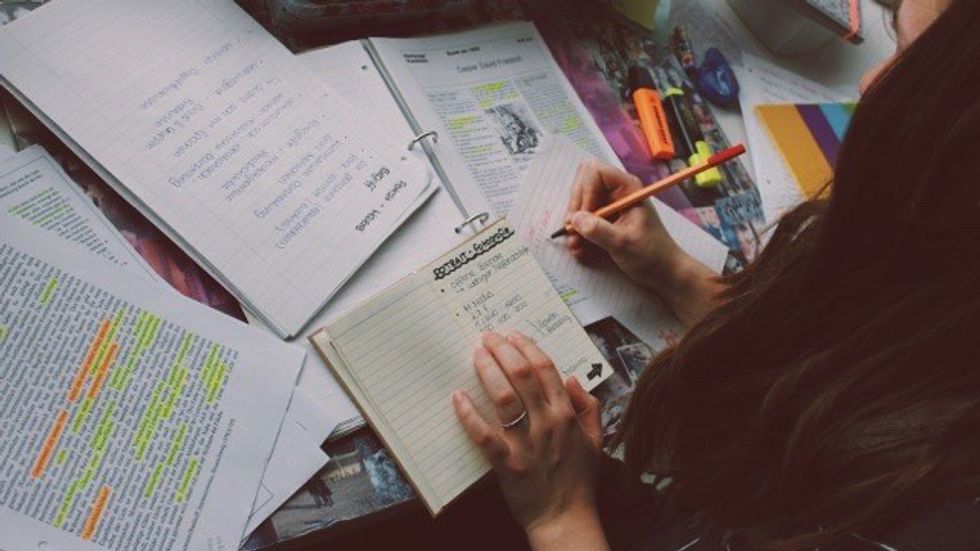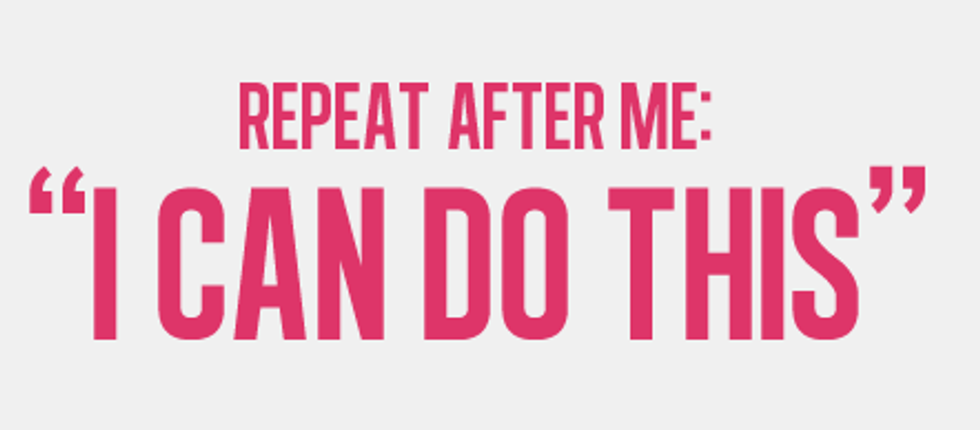With summer giving way to fall and back-to-school commercials showing at full speed ahead, it's time to say goodbye to those summer days (a moment of silence for spare time, freedom and waking up past noon, here) and once again remember what it means to be a student. Try out these 20 tips to have an organized, efficient and successful school year!
1. Make a to-do list every day
Listing out all the tasks you need to accomplish on a given day is an excellent way to stay organized, productive and motivated throughout the school year. Organizing your tasks with a list can make all the stresses of school, extracurricular and social commitments seem much more manageable and make you feel grounded; seeing an outline of your completed and uncompleted is much less stressful than having all your brain be a jumbled mess of everything you need to complete, and there's no better feeling than crossing an item off your to-do list and seeing the progress you're making from your hard work!
2. Learn what works
Some people are early birds, some are night owls. Some people prefer to study with a friend, others need total silence to concentrate. Experiment to find what works best for you, and then stick to it!
3. Use a timer
Working in bursts of time is a great study habit to enhance your concentration and prevent yourself from burning out too quickly. Some people can concentrate for around 20 minutes at a time, while others may be able to focus intently for as long as an hour; know your attention span and use a timer to study for that length of time before you take a break. Using a timer is especially helpful because it keeps you accountable and prevents you from wandering over to Netflix while you should be working. You can even use an app like SelfControl to block distracting websites and social media for the time that you've set aside for productivity!
4. Keep a planner
Like a to-do list, a planner is an excellent way to organize all the tasks you need to accomplish. During the school year, you should always have your planner on hand; that way, when you get a new assignment in school, have events for extracurricular or schedule an appointment, you can write it down right away before you forget. A great way to keep track of projects and school assignments in your planner is to use the "days-before-its-due" system; use a different color pen to write down an assignment depending on when its due. Red pen, for example, could indicate the due date of an assignment, while blue ink could indicate that it is due in a week. This way, you'll always know what assignments you'll have coming up and won't be surprised at the last minute.
5. Color code
Assigning each class a distinct color, like blue, red or green, and buying school supplies such as notebooks or binders only in that color is a great way to stay organized. If you are ever in a rush to catch the bus or get to class before the bell rings, it is much easier to find the homework and notes you need. Your binders will also be so easily distinguishable, and you never have to worry about accidentally mixing your notes in with the wrong class!6. Eat healthy
Eating healthy snacks while preparing for a big test or concentrating in class can significantly boost your energy and ability to retain information. Instead of munching on some potato chips to soothe your growling stomach, try reaching for some walnuts, berries, avocados or dark chocolate!
7. Drink up
No, not that kind of drink. Instead, make a visit to your favorite coffee shop for something filled with caffeine when concentrating on your work seems to get too rough; there is a lot of recent research suggesting that coffee and tea can help keep us alert. Green tea is an especially excellent drink of choice for students because it boosts energy and contains theanine, which helps ease anxiety.8. Have a system for taking notes
It doesn't matter what kind of notes you use--Cornell notes, symbols, color-coded scribbles or old-fashioned bullet points--just find what works best for you and stick to it. It will make it much easier for you to write down main ideas and review the information later.
9. Treat yourself
A scoop of ice cream, a jog around the block or 10 minutes on Instagram: whatever makes you happy. Knowing there is a little reward waiting for us at the end of an assignment or a few pages of notes makes it easier for us to beat procrastination while pushing through a semester of assignments. Work hard, reward and repeat!10. Keep binders, folders and/or notebooks for each of your classes
A great trick to being organized in high school is having a binder and spiral or composition notebook for each class; you can use the binder for your classwork and your notebook to take handwritten notes on the information covered in class. Like Benjamin Franklin once said, "There is a place for everything and everything is in its place." This makes studying for each class much easier and prevents papers from getting mixed up and lost!
11. Get some sleep
When there's a textbook full of facts to memorize, it can be tempting to stay up all night and attempting to commit them to memory for your test the next day, but all-nighters hardly ever prove to be successful; in fact, they've been linked to impaired performance and greater sensitivity to stress. In the days before your exam, aim to get the necessary seven to nine hours of sleep a night so that you can learn and access your full potential.12. Put yourself to the test
Research has found that quizzing yourself is one of the most effective ways to prepare for tests. It may seem frustrating at first when you just can't seem to remember what the first Chinese dynasty was called (fun fact: it was the Shang Dynasty,) but the harder it is to remember a piece of information in practice, the more likely we are to remember it in the future. Try using a tool like Quizlet to make your own study sets and quiz yourself!
13. Work it out
Being strong and being intelligent do not have to be mutually exclusive. Recent research has found that half an hour of aerobic exercise can improve our brain-processing speed and other important cognitive abilites. Take a well-deserved break, become a fit and active person and gain a few IQ points while you're at it!
14. Ask questions
You've heard the phrase a thousand times before, but it's just that important. There is no shame in asking a question to stimulate discussion in a classroom environment or clarifying a concept that you do not understand. You are not expected to know everything at school; it's a learning environment, and you are there to ask questions and expand your knowledge. The more questions you ask, the more you learn! If you are too nervous asking questions in front of a class, teachers are always happy to work with students before or after class to clarify concepts and answer questions. Asking lots of questions is an excellent way to take advantage of the resources offer to you and make the most of your time at school.
15. Stock your backpack
Always keeping your backpack stocked with the things you need- whether it be your water bottle, planner, notebooks or pencils- is a great way to stay on time and organized. Packing your backpack at night when you're finishing up for the day is especially helpful because all you need to do in the morning is grab your backpack and head out the door!
16. Plan your outfit ahead of time
We all know the feeling: the clock is ticking, the bus is honking outside and breakfast is getting cold downstairs, but we still can't seem to decide what to wear. By going to bed with a fair idea of what you want to wear the next day, you can have a stress-free morning, look fantastic and head out the door with ease.
17. Set your own deadlines
As a student, especially in high school, you'll often be assigned two or more assignments for different classes that are due on the same day. If you have two projects due on the same day, for example, vow to finish one of them on a different date, such as a week or a few days before its due. This means that you will have to get started earlier, but it also means you will not have to scramble to finish all your work at the same time when your actual due dates come around.
18. Review constantly
A new technique called "spaced repetition" involves breaking up information into small chunks and reviewing them consistently over a long period of time. This is a very helpful strategy to work with because students are constantly suffering from the negative effects of the "forgetting curve:" after 24 hours, people forget up to 80 percent of the information they've learned. Set aside 15 minutes each day leading up to an important test to review information, and you will do significantly better on assessments!
19. Strategic procrastination
We all know that ceasing to procrastinate is a task much more easily said than done, so why not use that time to do something productive? Read up on something educational, clean your room, go for a run or even go shopping for some color-coded school supplies! Procrastinated time doesn't have to be wasted time, and it can be used to your advantage to make the most of your school year.
20. Be motivated
At the end of the day, the success of your school year is in your hands. School will inevitably have its stressful moments and life may seem tricky, but you can't let yourself get sloppy; remind yourself of why you want an organized, successful and happy lifestyle. Stop wishing, and start doing.


